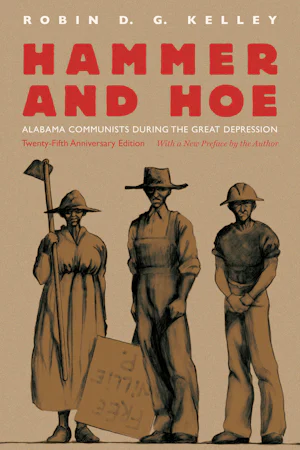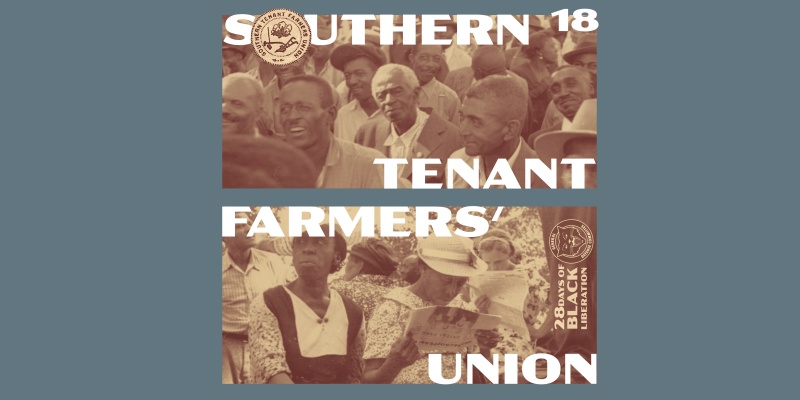Day 18 of the 28 Days of Black Liberation 2024 series
Black tenant farmers in the 1930s had all the reason in the world to resist capitalism. As anti-capitalist struggles took hold globally, these ideas found fertile soil in the hearts and minds of Black farmers in the southern United States.
After the United States outlawed chattel slavery, the white ruling class’ practices of labor exploitation evolved. They introduced a sharecropping system where a landlord would charge a tenant farmer fees for the use of land, housing, and food.
The farmer paid off fees through the crops they harvested. The landlord set the cost of fees and the prices paid for the crops. Not surprisingly, tenants would find fees set extremely high and the prices paid for crops were extremely low. Each year, farmers would find themselves deeper in debt, and even more tied to the landlord.
Tenant farmers were most often formerly enslaved Black people and their descendants. This system placed them in indentured servitude to the same white families who had enslaved them.
Sharecropping unions were created in response to New Deal-era policies designed to increase the price of food by paying farmers not to grow. These payments were made to landowners, who hoarded them, continued to charge rent, and/or evicted the farmers from the idled land.

Communities of sharecroppers banded together to organize militant direct actions to pressure landlords to share the payment, pay fair wages, guarantee shorter work days, and cease all practices of dispossession. These became labor organizations including the Share Croppers Union (SCU) and the socialist Southern Tenant Farmers Union (STFU). These organizations became vital centers of solidarity and struggle for Black working people, and also became some of the first racially integrated labor organizations in the country.
Learn more about the STFU and other militant Black communist organizing histories in Robin D.G. Kelley’s book Hammer and Hoe.
In the United States, the Black liberation struggle is the vanguard of the revolutionary class struggle. Black resistance to white supremacy has been the catalyst for nearly all critical social ruptures throughout american history. White workers choosing an alliance with the bosses instead of siding with the rest of the working class is the primary roadblock to revolutionary anti-capitalism in the US.
The GDC celebrates the Black liberation struggle and draws inspiration and lessons from its proud history in our struggle for the new world we are fighting for. In February we celebrate Black revolutionary culture, political prisoners, international figures and struggles, and moments in direct action that guide us in our continued, collective fight for liberation!

